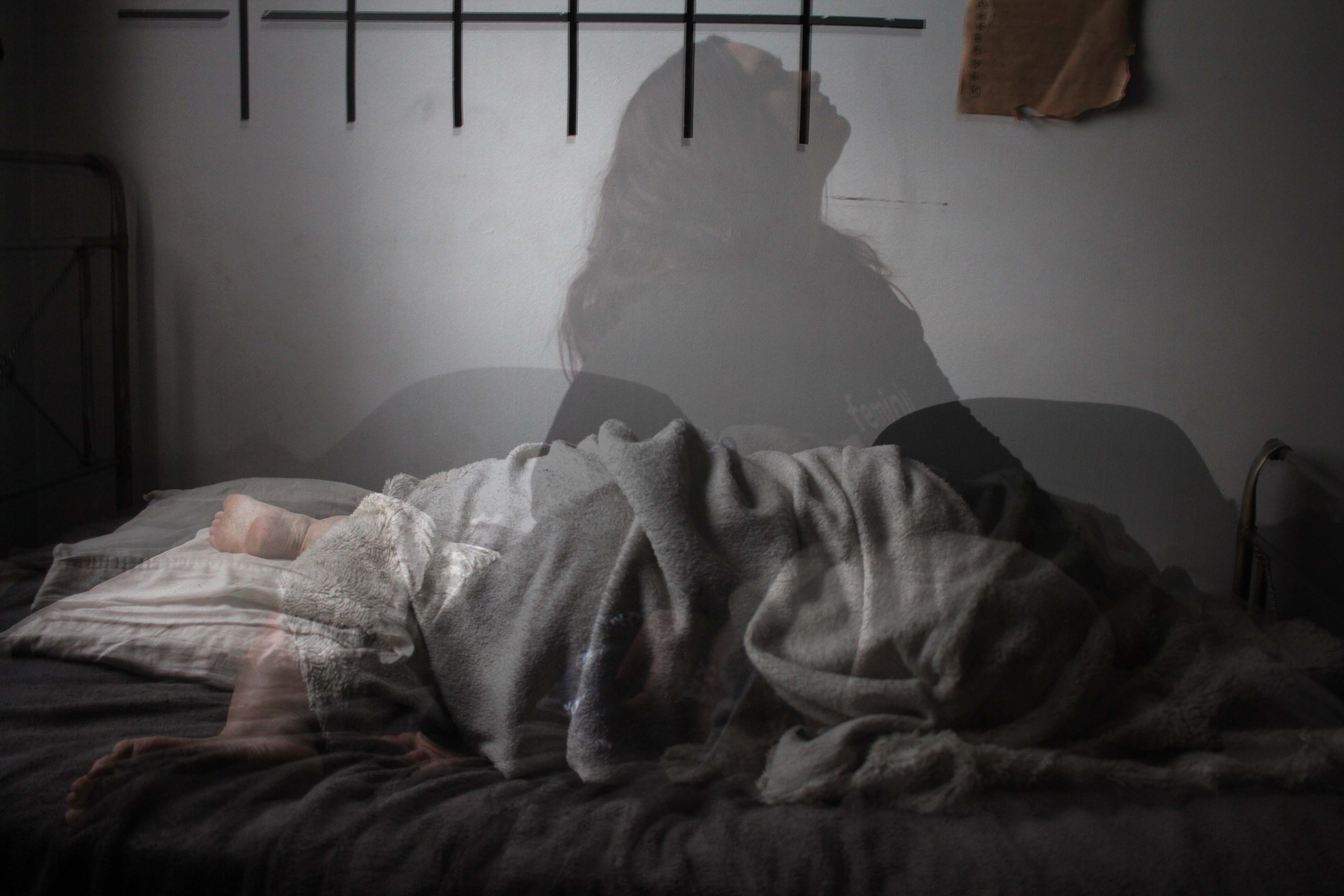Sleep issues, or insomnia, are becoming increasingly common. Some people can’t get to sleep. Some people wake up multiple times per night. And some people only sleep a couple hours per night. Poor sleep can interfere with your ability to focus and concentrate. Poor sleep can also make it difficult to maintain mood stability. Chronic sleep disturbances and insomnia can affect your relationships and overall health. Assuming there isn’t a true medical reason for your sleep disturbances…let’s start with good sleep hygiene.
Follow a consistent bedtime routine
Pick a consistent bedtime and turn off all devices at least two hours before bedtime. Yes, that’s right – all devices (tv, cell phones, laptops, etc). The blue light that is emitted from these screens signals the brain to wake up which makes it hard for the brain to sleep causing insomnia.
Taking a bath before bedtime, reading a book or journaling helps quiet the mind prior to bedtime. This may help you fall asleep faster and, hopefully, stay asleep. For those of you who are struggling with quieting the brain or putting perseverating thoughts to sleep, some find it helpful to actually get up and write down the thoughts that are bothering them. Or some take the to-do list in their head and put it down on paper. Writing down these thoughts is often enough for the brain to relax again and allow sleep to come. Over time, this may happen less and less. However, if it seems to happen consistently, you may be struggling with anxiety and need to be evaluated for medication to assist with anxiety. If anxiety seems to be centered around a specific event, talk therapy can be helpful in working through the stress around the specific situation leading to better stress.
Create a relaxing sleep environment
For the best quality sleep, you should keep your room cool, dark and quiet. Use blackout window coverings if possible to keep out early morning light or light from the streets. Use white noise (air conditioner, white noise machine or apps, etc) to block out any external sounds that may disrupt your sleep. Aromatherapy can be helpful. Lavender is known to assist with sleep and can be found infused in pillows, pillowcases and eye masks. Lavender oil can also reduce anxiety and emotional stress which can also assist with sleep.
Melatonin
You can also consider a sleep aid, like melatonin, a natural occurring hormone in the body, that is commonly found in pill form. People take melatonin to adjust the body’s internal clock. Melatonin is used to beat jet lag and adjust sleep-wake cycles. Melatonin is also taken by people who have trouble falling to sleep for whatever the reason they have insomnia. Depending on the time you want to go to bed, you can take 3-5mg of melatonin approximately 2-3 hours before you want to go to sleep. Check with your doctor if you have any medical conditions or take medications that may make melatonin supplements prohibitive.
Breathing and Meditation
There is significant research to support the benefits of meditation. Some argue that meditation is best done in the morning to set the day off in a positive, calm way. However, prior to bedtime, meditation can also reduce brain arousal which can help you fall asleep faster. There are apps that you can use if you want assistance. The Calm app is a great resource for meditation and adult bedtime stories. Headspace is another app that is useful for relaxing and managing stress. By connecting your breathing (body) with your thoughts, this mindfulness can help sleep come faster. Many therapists can assist you with developing this skill as well.
Avoid Alcohol and Caffeine
If you are have insomnia, limiting your caffeine intake, especially after 4pm, is very important. Caffeine is a stimulant and can make it difficult to fall to sleep. While alcohol is a depressant, meaning it slows down your motor process, and can help people fall asleep, it often leads to disrupted sleep.
Exercise Regularly
Try to participate in a consistent exercise regimen. Regular exercise will increase muscle which can help improve the quality of your sleep as well as help you fall asleep faster. Exercise can also help improve anxiety and emotional stress which can also help you sleep better. Newer research indicates that the time of exercise may affect your sleep. Try to exercise earlier in the day – not before bedtime – to increase the chance of improved sleep.
Hopefully these tips will be the start of better sleep. If not, though, consider therapy to further explore what may be interfering with your sleep. Sometimes we do not realize we are anxious or that we have perseverating thoughts contributing to insomnia until we explore it in therapy. Reach out if you need assistance in establishing good sleep habits or you have situational anxiety or stressors that may benefit from therapy.
Aimée Muth, LCSW is a therapist practicing in Old Greenwich. For more information, go to: www.aimeemuthlcsw.com.

